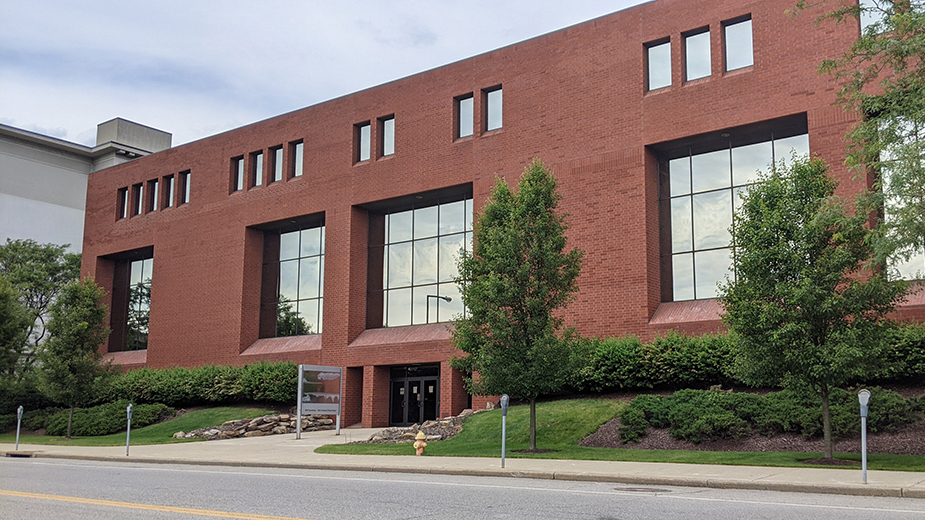YOUNGSTOWN, Ohio – Ohio One Corp., a major downtown Youngstown landlord for decades, is preparing to put one of its properties on the market as part of its pandemic-related downsizing.
The listing of the IBM Building comes as the building’s major tenant, Mercy Health-Youngstown, vacates the building at the end of June when its lease expires, says Rich Mills, president of Ohio One.
Mercy has made “a systemwide decision to work remote administratively,” he says. Come the end of June, the building will become “essentially vacant.”
The move reflects a trend – though not as pronounced as was feared a year ago, when the pandemic forced many companies to have their employees work from home – to shift some work away from offices.
“Overall, we have been extremely fortunate. Most of our tenants have remained in place through the pandemic,” Mills says, with Mercy Health and Daily Legal News being the major exceptions.
Occupancy rates have remained relatively steady, with City Centre One having added as tenants the Youngstown/Warren Regional Chamber last year and the Western Reserve Port Authority the year before.
No Ohio One tenants downsized their office spaces, Mills reports.
Still, the local market for office space reflects national trends.
According to a study conducted earlier this year by KPMG International, a multinational firm that provides audit, tax and advisory services, just 17% of global executives said they planned to downsize office space because of the pandemic.
That compares with the 69% of CEOs surveyed in August 2020 who said they planned to reduce office space over three years. That finding, KPMG said, indicated either many of the downsizings already took place or the companies’ strategies changed.
Even though businesses and their employees expanded remote work options over the past year, businesses understand that socialization and communication are important, says Bill Kutlick, an agent with Platz Realty Group, Canfield.
“We are a mobile society but you’ve still got to socialize with people,” Kutlick says. “People are tired of staying at home. They want to get back to a work environment of some sort.”
Some downsizing has taken place locally, real estate agents and brokers in the Mahoning and Shenango valleys report, but not all of it can be attributed to the pandemic.
“Very seldom do I hear, ‘We outgrew our office space,’” says Bob Collins, a commercial real estate agent with Berkshire Hathaway
HomeServices The Preferred Realty in Hermitage, Pa.
About 90% of Collins’ customers tell him they are looking for a smaller space than they are vacating, he reports, often telling him they don’t want to pay for 2,500 square feet when all they need is 1,000.
Professionals in white-collar fields can do much of their work out of their residences but still need a place to meet clients. Many just need a space that’s large enough to have meetings, which can be found for lower prices than full-size offices, Collins says.
The volume of available office space is climbing, says Vince Hillard, a commercial real estate agent with Berkshire Hathaway HomeServices Stouffer Realty’s offices in Boardman and Hermitage.
Businesses that have offices in more rural areas, such as Greenville and even New Castle, Pa., are consolidating their employees into downtowns and higher-population areas, he says.
One of the drivers of that trend is the University of Pittsburgh Medical Center system. UPMC is constructing an office building in Hermitage, with plans to consolidate several of its affiliated physicians’ offices into the new building.
“I already have a glut of offices caused by UPMC consolidation,” Hillard says. “There’s going to be even more when they move doctors into this new building.”
The pandemic is just one factor contributing to shrinking offices. Technology is another, Kutlick says.
He cites iHeartRadio’s recent lease renegotiation for its space at 7461 South Ave., Boardman, which resulted in the radio-station group downsizing to about 8,000 fewer square feet of space because of advances in radio technology.
“Because of technology, they didn’t need all that space,” he says.
In some cases, tenants are looking for more space, not less, according to Jim Grantz, broker associate at Edward J. Lewis Inc., Youngstown.
“We’ve got some folks that we dealt with years ago and moved into bullpen scenarios. Now they want people in private offices,” he says.
The environment is causing prices to stay where they are or forcing them down, the agents and brokers report. Over the past year, Hillard says he has reduced rates at least 10% on some office properties.
“It does cause a downward pressure on prices,” he says. While he sees a resurgence in demand for industrial space, office space will likely be the last to recover, Hillard predicts.
Pricing for properties is stagnant, Lewis Realty’s Grantz says. “We’re not seeing any great inflation of prices. If anything, we’re seeing some incentives to get deals finished,” he says.
Berkshire Hathaway’s Collins also sees rates remaining stable but says property owners are offering incentives to sweeten the deal. For a three-year lease for space at $14 per square foot, a landlord might give the tenant a rate of $10 per square foot for the first year, he says.
Building owners will lament they used to get $15 per square foot. “That’s when office space was tight. Now it’s different,” Collins says.
Kutlick advises those in the market for office space to lock down deals while space remains available. Construction costs are rising 20% or more as a result of supply issues, he says. If new space isn’t built, there will be “huge demand” on the existing product.
“The rates aren’t going to be $12 per square foot. They’re going to be up 30% at least,” Kutlick says.
Pictured: The IBM Building, at 250 Federal Plaza East, has 62,400 square feet. It was built in 1979 and updated in 2020.
